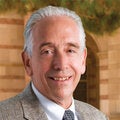General Summary: Most organizations do not lack analytics, ideas, or change processes–they struggle with the people side of executing. This course promises you will better understand why change fails and the adjustments you can make to lead change successfully.
Primary objective: Help students understand the emotional processes that lead to engagement with and commitment to change. As organizations and the environments in which they operate get more complex, change management is becoming exponentially important.
Outcomes: While the focus is not on change theory, students will be introduced to a cursory review to understand the emotional process’s significance better as it relates to change. Students will learn to embrace resistance, be a non-anxious presence during change, understand how leaders get sabotaged and diagnose systemic dynamics that undermine change initiatives.
Course Outline:
Day One: We will explore change theory and popular change processes. Particular emphasis will be on white water, a metaphor change leadership expert Peter Vaill uses to explain the dynamic environment in which change occurs. He argues, “No sooner do you begin to digest one change than another one comes along to keep things unstuck.” We will discuss why people naturally resist change and strategies for embracing the resistance.
Day Two: We will cover why leaders resist embracing change feedback. Ironically, the more things change for the better, the more discontent people become. Abraham Maslow referred to the phenomenon as the Theory of Rising Expectation. We will learn strategies for receiving critical feedback and interpreting it. We apply the concept of Force Field Analysis to a change initiative.
Day Three: We will discuss how leaders create a sense of urgency about the need to change. Ronald Heifetz suggests, “The role of leadership is to create enough discomfort that people feel the need to change and to create a safe enough environment in which they can change.” We will talk about how to create a safe environment for change.
Day Four: We will explore the concept of incremental change and its relation to transformational change. The day will focus on the managerial leader as a change agent and exercising transformational leadership. The four stages of transformational leadership critical to leading change are self-leadership, one-on-one leadership, team leadership, and organizational leadership. We will discuss each of the stages and self-reflect on strengths and weaknesses.
Day Five: We will discuss the importance of empowerment in the execution of change. Recognizing when people and organizations are stuck is critical to understanding how to initiate and manage change. The life cycle of organizations, products, and processes indicates how emotionally ready an organization is.
The content of this course is theoretically based, and practitioner-proven (the why and how of successfully leading change). Participant learning will result in self-efficacy and observed competence.






